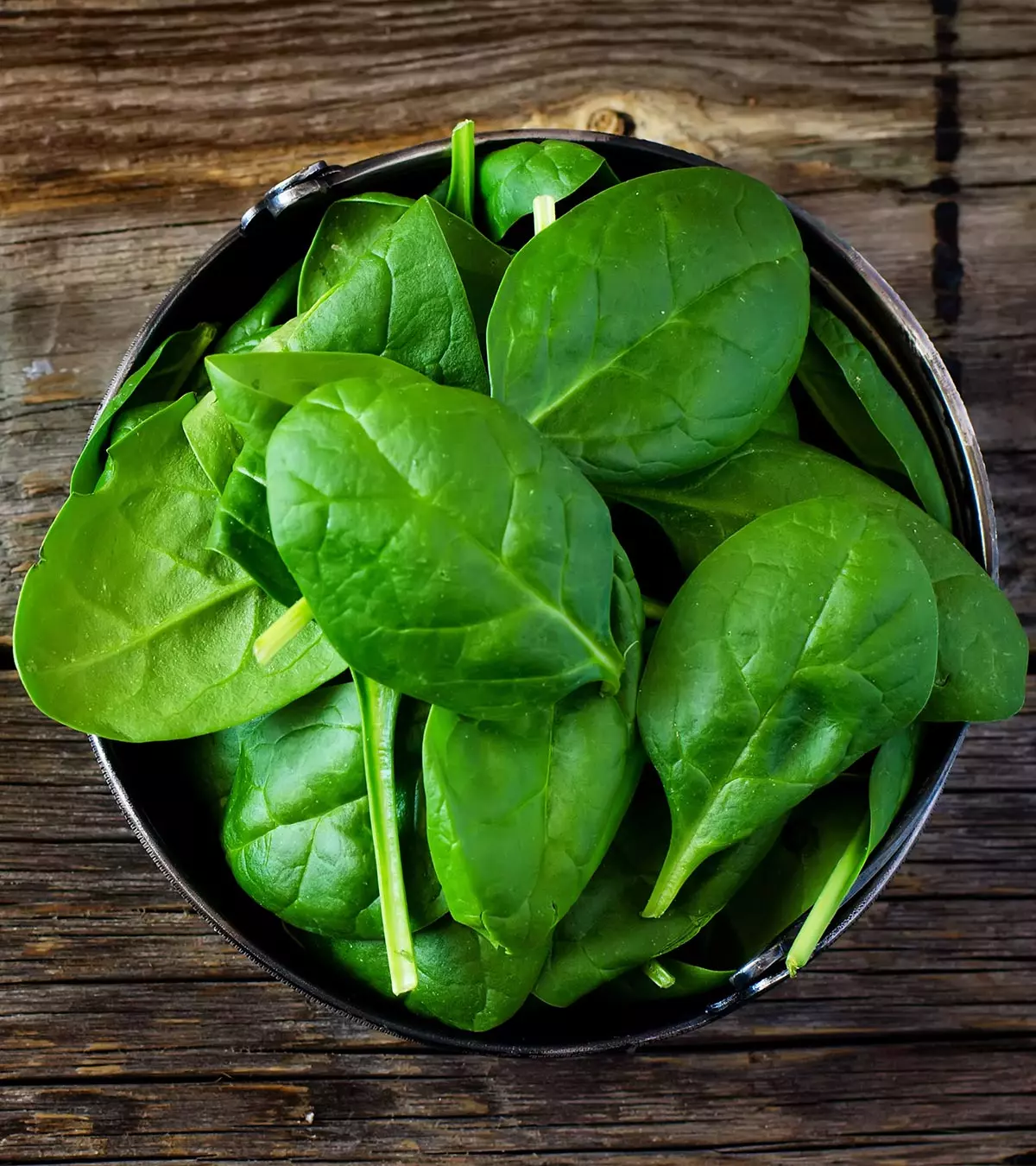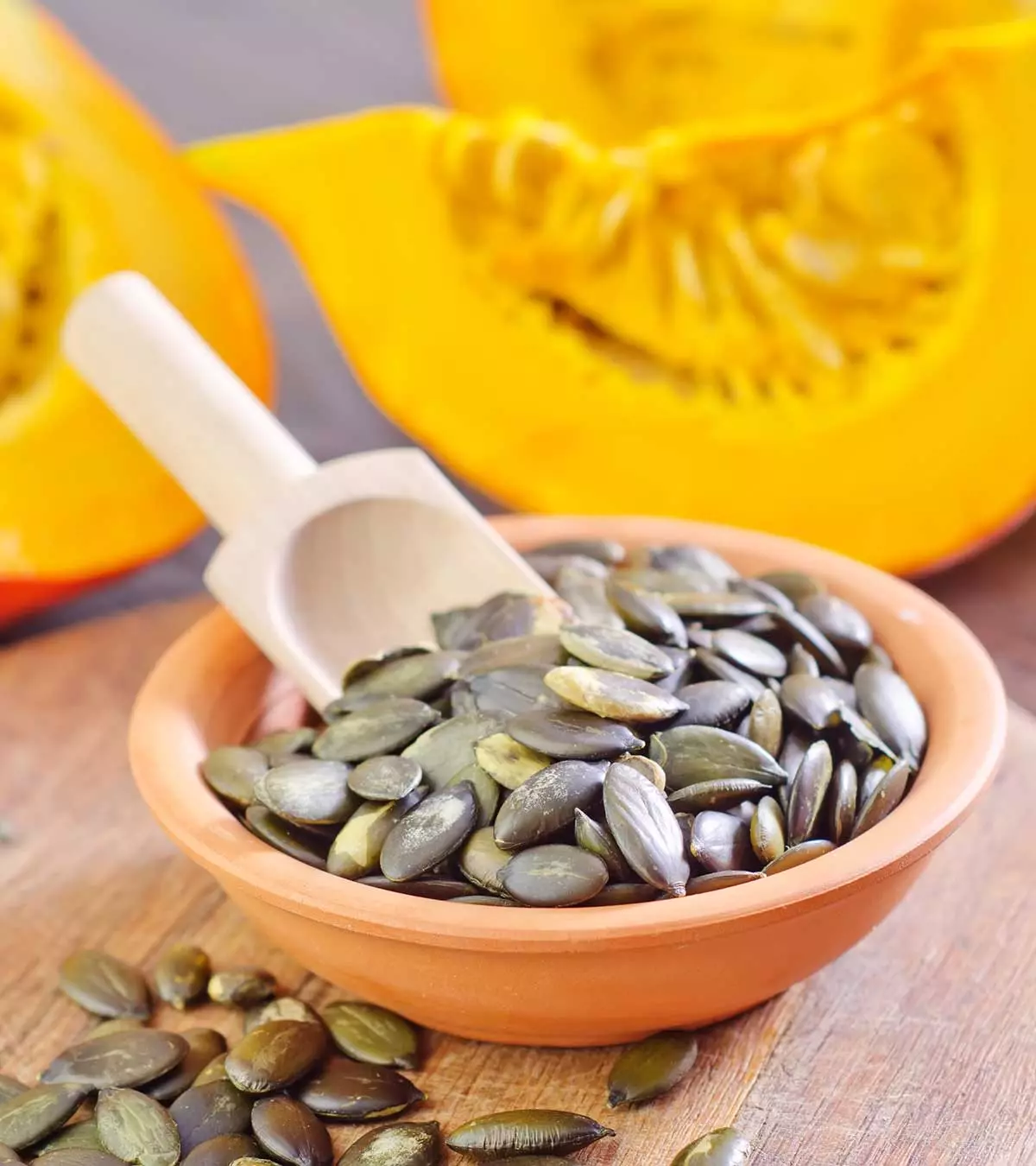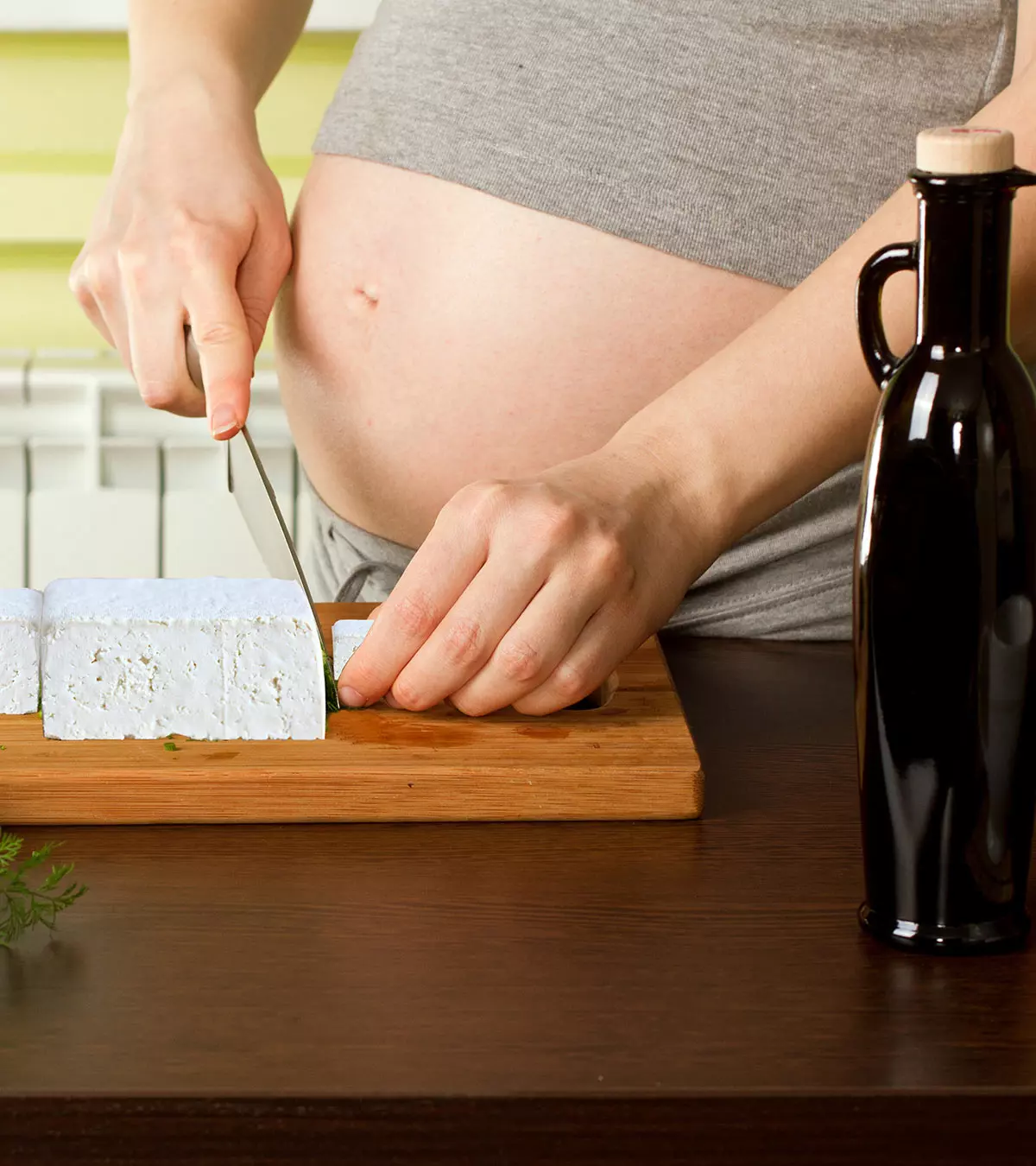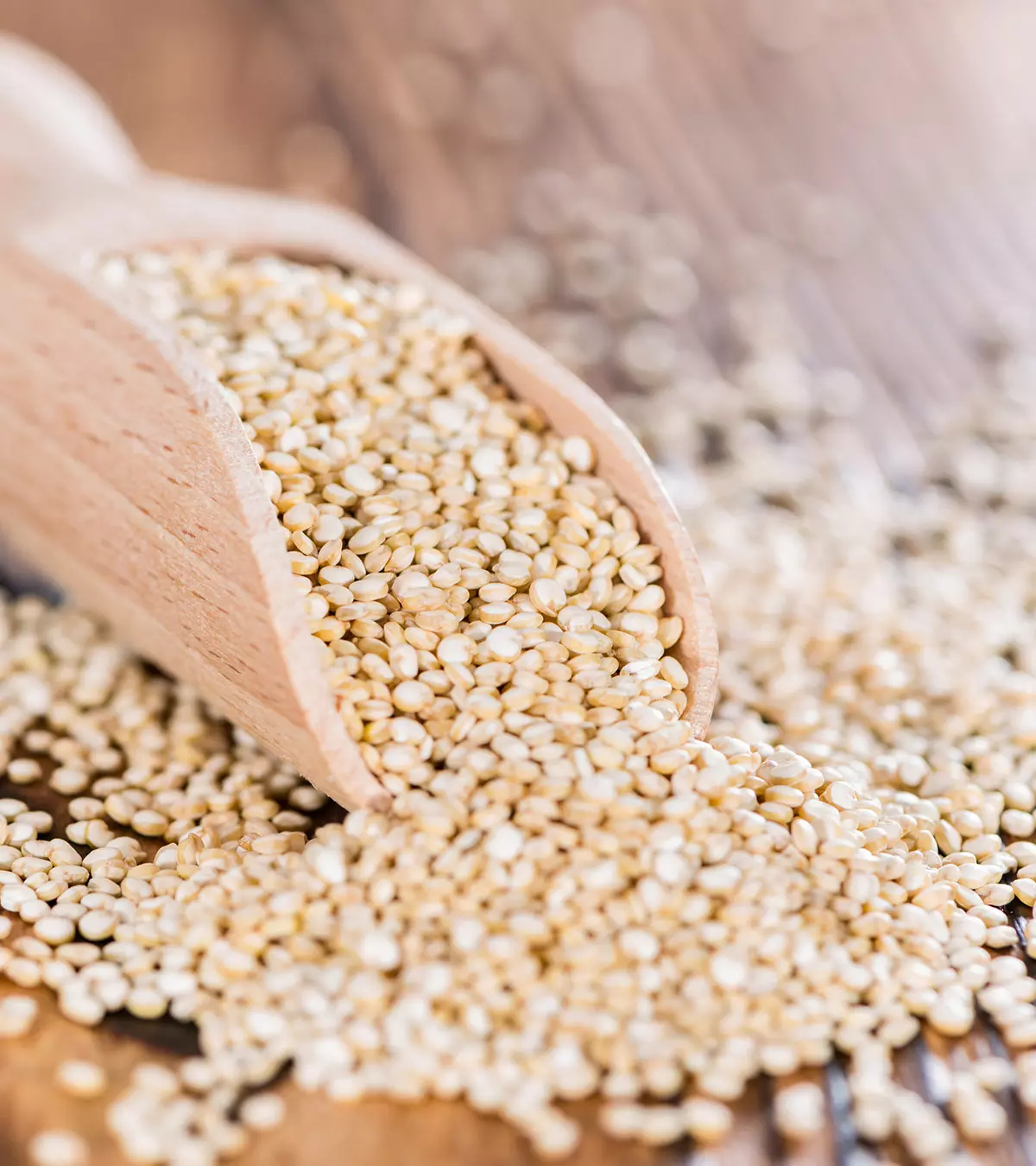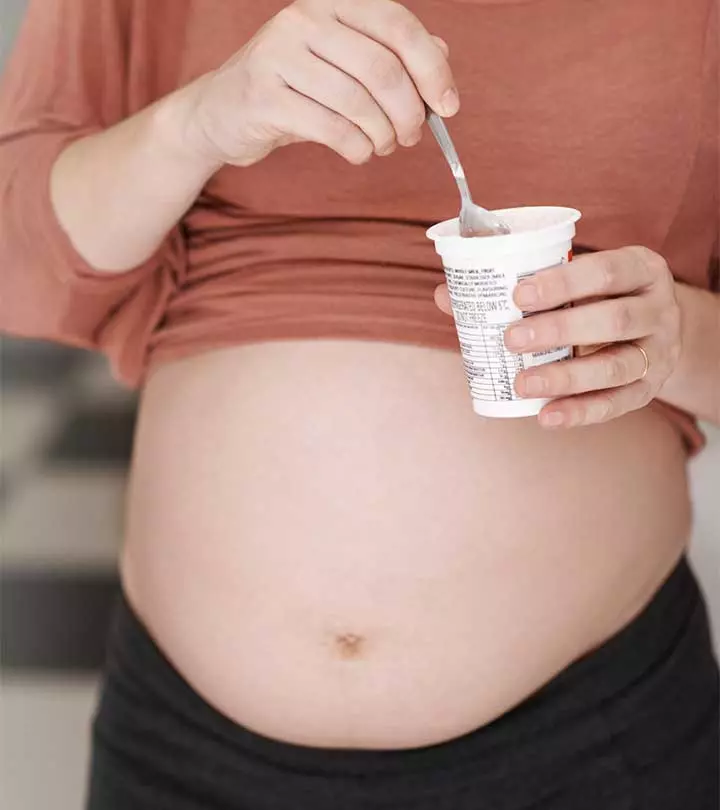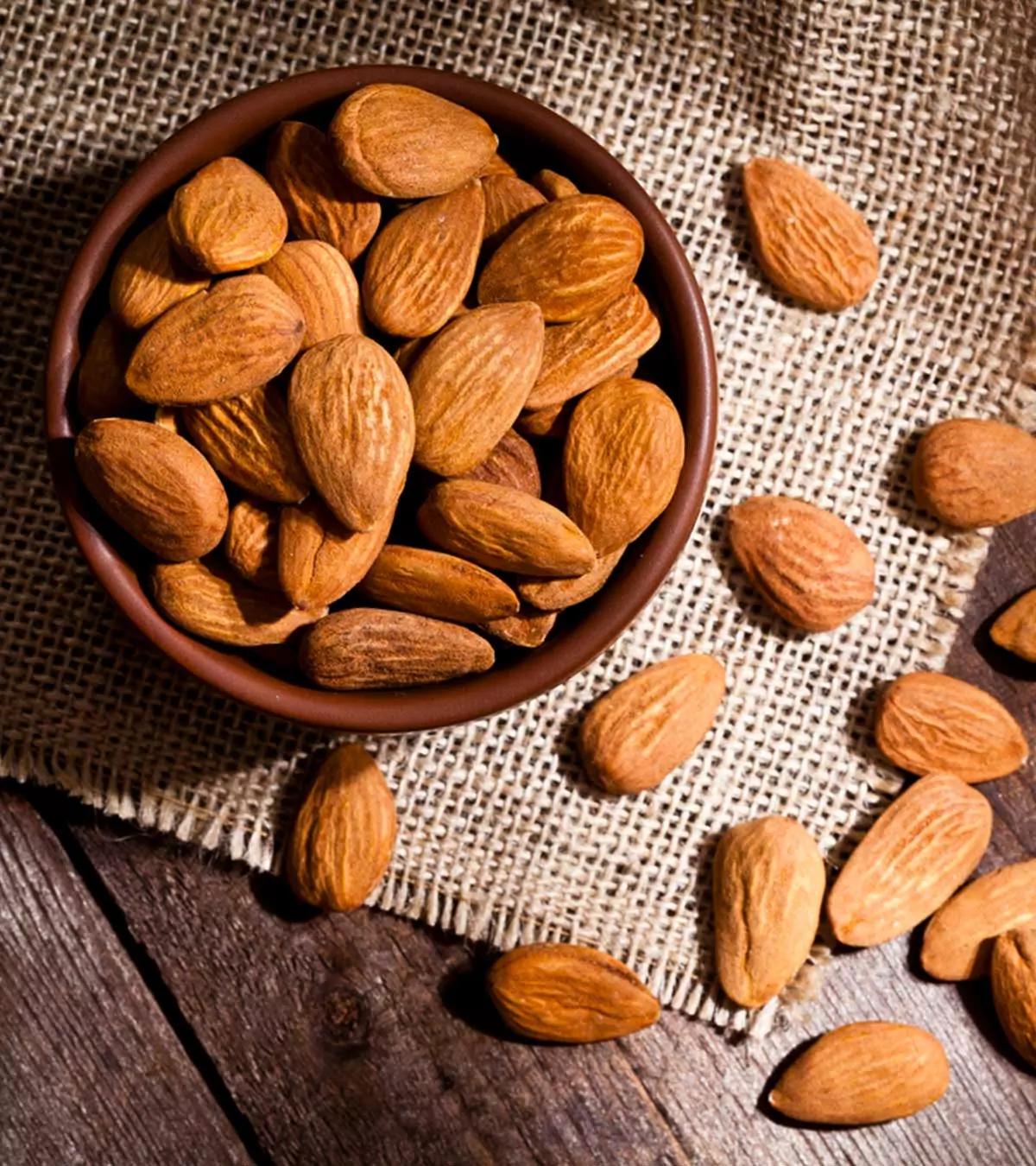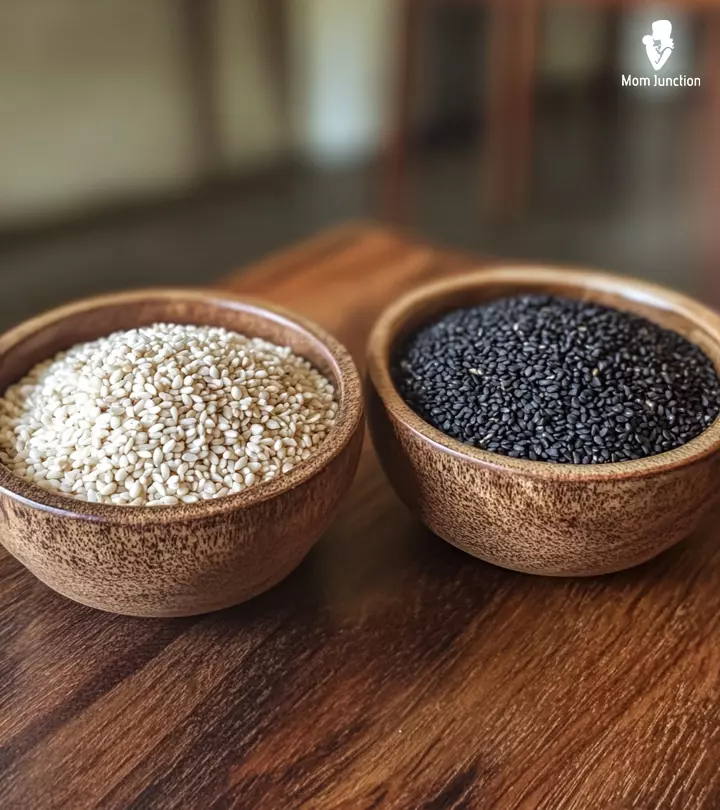
Food aversion during pregnancy is a common problem. Some pregnant women may not feel like eating anything, or their favorite foods are not delicious anymore. It is normal for pregnant women to feel nauseous from the taste and smell changes. Food aversion is challenging to manage, especially if a pregnant woman does not enjoy eating anything.
Like cravings, food aversions can also be linked to a heightened sense of taste and smell in pregnancy. Read on to understand the causes of food aversions in pregnancy, tips to manage it, and how to follow a balanced diet at such times.
Key Pointers
- Pregnancy sensitivity towards certain smells, hormonal changes, nausea, and maternal-embryo protective mechanisms cause food aversions that usually begin in the first trimester.
- Pregnant women are more likely to share aversions to spices, caffeine, dairy, poultry, meat, seafood, eggs, fried foods, and starch.
- Have frequent small meals, indulge moderately in cravings, eat healthily, sleep adequately, regularly consume prenatal vitamins, and find acceptable alternatives to prevent aversions.
- Monitor and consult a doctor if cravings increase for non-edible foods or if healthy foods become aversive.
When Does Food Aversion Start In Pregnancy?

A study has found that 54% of pregnant women experienced food aversions during early pregnancy (1). The condition could occur at any stage of pregnancy, but it is more likely during early pregnancy or the first trimester. This feeling of disgust towards certain foods may go away as the pregnancy progresses or after you deliver (2).
 Quick tip
Quick tipWhat Causes Food Aversions During Pregnancy?
The exact cause of food aversion or appetite loss during pregnancy is not known, but researchers have a few theories.
- Hormonal fluctuations: Just like the behavioral and physiological changes during pregnancy, food aversions could also be due to hormonal changes. However, there is no connection between food cravings and aversions.
 Did you know?
Did you know?- Morning sickness: Nausea is more common during the early months of pregnancy and could be responsible for food aversions. For instance, just the smell of certain foods can make you feel nauseated (3).

- Sensitivity to taste and smell: During pregnancy, a woman’s senses are heightened. Abnormally increased taste and smell sensitivity could stop you from having any foods. For instance, sensitivity to a bitter taste may prevent you from having tea, coffee, or chocolate (4).
- Maternal-embryo protection hypothesis: It states that certain mechanisms don’t allow pregnant women to have foods that contain toxins or pathogens. It is to protect the woman and her baby. This could also be a cause for food aversions (5).
But what foods could you become averse to? Can you even eat anything? Find out more about it next.
Common Pregnancy Food Aversions
All pregnant women are not repulsive to the same foods. Food aversion depends on several factors and varies accordingly. But in general, most pregnant women tend to be averse to these foods.
- Spices or spicy foods: You may be averse to hot and spicy foods especially during the first trimester when you have nausea and vomiting (6).
- Caffeine: Pregnant women may also have an aversion to caffeine. According to a study on caffeine consumption, 65% of the women had expressed their aversion to drinking coffee when they were pregnant (7). Some expectant mothers reduce the intake of tea too.

- Poultry, meat, and seafood: Food aversions to eggs, meat, chicken, fish, and other seafood were also reported during pregnancy. There was a reduction in the consumption of these foods during their pregnancy (8) (9).
- Others: Pregnant women could be averse to dairy products, fried food, and starchy foods too.
Bailey Gaddis, a mom, a birth doula, a childbirth preparation educator, and a hypnotherapist, shares her food aversion during pregnancy, “I absolutely have no craving for sweets. I usually have the biggest sweet tooth and I could just eat sweets all day long. But, during pregnancy, I don’t want sweets at all (i).”
Can You Prevent Food Aversions During Pregnancy?
No, there is no way to prevent the condition. However, you can try to control the nausea and get over the aversion. If you understand your body’s requirements and address the changes accordingly, you could probably overcome the aversions.
Read on for some simple tips that can help you deal with these aversions.
How To Overcome Food Aversions During Pregnancy?

Food aversions during pregnancy may lead to nutrition deficiencies and inadequate weight gain, which can affect fetal development and maternal health. Although this will normalize with time and should not be a cause of concern, the following changes in your eating habits may help you overcome your aversions.
- If you have an aversion to specific foods, find substitutes for them. Keeping a food diary can help you identify and track specific aversions.
- Do not stay hungry for a long time. An empty stomach for a long time could also make you nauseous and averse to food.
- Try to distract yourself for a while and eat foods you crave for. However, see that you have them in moderation.
- Eat something that can soothe your tummy. You may try mints, lemon candies, or something gingery.
- To prevent nausea and vomiting, eat in small portions and at regular intervals.
- Focus on eating healthy.
- See that you are getting proper sleep.
- Try to cook your own food and make it appealing and palatable.
- Talk to your doctor and check if you can take prenatal vitamins to meet your nutrient requirements. The doctor might even prescribe you medicines to get rid of vomiting and nausea during pregnancy.
- Avoid unhealthy food as they might not be good for you and your baby.
Food aversion is a temporary condition and won’t bother you for long.
How Long Does Food Aversions Last In Pregnancy?
Food aversions can appear and disappear at any point during pregnancy, although they are more common during the first three to four months. Food aversions usually disappear after the delivery, but in some cases, they may continue post delivery too.
When Should You Call The Doctor?
When you have aversions to spicy food or fried stuff or something manageable, you need not worry much. However, if you are averse to all healthy foods and experience cravings for non-edible things such as clay or paper (medically known as pica), then you should talk to your doctor.
Frequently Asked Questions
1. Can food aversions predict gender?
Food cravings and aversions during pregnancy are not related to the gender of the baby. Gender can only be predicted through ultrasound imaging by a skilled sonographer (10). Instead, food cravings during pregnancy may indicate what your body requires. For example, a woman wanting to chew ice can have a low-iron level.
2. Are food aversions more common with baby boys?
No reliable studies link food aversions to a baby’s gender. However, food aversions can be closely related to the pregnant woman’s dietary intake. Thus, aversions may predict the maternal nutritional status more than gender (10) (11).
3. Do food aversions go away with pregnancy?
Food aversions and avoidance are common in the first trimester and may be caused by taste changes during pregnancy. In most cases, it gradually improves during the last trimester and goes away after pregnancy (12).
4. Is it safe to eat foods that are causing food aversions during pregnancy?
Food aversions tend to subside by around 14 weeks. Therefore, if you don’t feel like eating certain foods initially, you may avoid them and try again later in your pregnancy to see if the aversion has passed (13).
5. Are there any health risks associated with food aversions during pregnancy?
Common food aversions during pregnancy are not considered harmful to maternal and fetal health. However, if you are experiencing nausea and vomiting and not getting enough nutrients or losing weight, you should consult your doctor (13).
6. Are there any treatments available for food aversions during pregnancy?
Vitamin B6 and Doxylamine may help alleviate morning sickness and ease some of your food aversions (14). However, you should avoid self-medication and consult a doctor if you wish to take any medication.
It is normal to have food aversions during pregnancy. Some women may not like the taste of their favorite foods during pregnancy. Most pregnant women experience food aversions in the early weeks of pregnancy. While a few may have it throughout their pregnancy. Morning sickness, hormonal changes, maternal-embryo protection hypothesis, and changes or heightened taste and smell sensitivity can be the culprits of food aversions in pregnancy. Consider a diet chart for pregnant women with balanced nutrition and alternative sources of nutrition. Most women may also develop aversions to coffee, or other caffeinated beverages, poultry, meat, and spicy foods during pregnancy.
Infographic: Meeting Nutritional Needs With Food Aversions In Pregnancy
Cringing at the sight of greens? Unable to tolerate the smell of meat? Save this infographic to know the alternative food items you may consider eating. These ideas will help you eat food without compromising nutrition. Illustration: Momjunction Design Team
Illustration: Common Causes Of Food Aversions During Pregnancy

Image: Stable Diffusion/MomJunction Design Team
Personal Experience: Source
MomJunction articles include first-hand experiences to provide you with better insights through real-life narratives. Here are the sources of personal accounts referenced in this article.
i. My pregnancy food aversions + cravings, and what they mean;https://www.youtube.com/watch?v=6tGpiiPuu20
References
1. T. M. Bayley et al.; Food cravings and aversions during pregnancy: relationships with nausea and vomiting; School of Psychology (2002)
2. M. M. Weigel et al.; Food aversions and cravings during early pregnancy: association with nausea and vomiting; Human Nutrition and Immunology Research Laboratory University of Texas (2011)
3. Issue Paper on Physiological and Behavioral Changes in Pregnant and Lactating Women and Available Exposure Factors; Office of Research and Development U.S. Environmental Protection Agency Washington (2015)
4. S. Nordin, D. A. Broman, J. K. Olofsson, and M. Wulff; A longitudinal descriptive study of self-reported abnormal smell and taste perception in pregnant women; Oxford Academic (2004)
5. L. McKerracher and M. Collard; Food aversions and cravings during pregnancy on Yasawa Island, Fiji; Harvard University (2016)
6. Caitlyn D Placek et al.; Innate food aversions and culturally transmitted food taboos in pregnant women in rural southwest India: separate systems to protect the fetus?; Evol Hum Behav. 2017
7. C. C. Lawson, G. K. LeMasters, and K. A. Wilson; Changes in caffeine consumption as a signal of pregnancy; Reproductive Toxicology (2004)
8. M.Margaret Weigel, Kathyrn Coe and Nancy P. Castro et al., Food Aversions and Cravings During Early Pregnancy: ; Association With Nausea and Vomiting. Research Gate.
9. L. L. Kaiser and L. Allen; Position of The American Dietetic Association; Journal of the Academy of Nutrition and Dietetics (2002)
10. Gender, positions and cravings in pregnancy: truth or myth; National Childbirth Trust (NCT)
11. Food aversion during pregnancy and its association with nutritional status of pregnant women in Boricha Woreda, Sidama Regional State, Southern Ethiopia, 2019: A community based mixed crossectional study design; BioMed Central (BMC)
12. Common Concerns In Early Pregnancy; The Royal Women’s Hospital
13. Appetite changes and food aversions during pregnancy; Pregnancy Birth and Baby14. Morning Sickness: Nausea and Vomiting of Pregnancy; The American College of Obstetricians and Gynecologists
Community Experiences
Join the conversation and become a part of our nurturing community! Share your stories, experiences, and insights to connect with fellow parents.
Read full bio of Dr. Neha Singh
Read full bio of Swati Patwal
Read full bio of Rebecca Malachi
Read full bio of Aneesha Amonz








